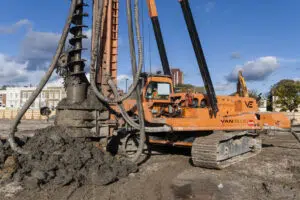
Offering end-to-end capabilities with over 25 specialist ground engineering techniques, we have the experience, people and assets to carry out your projects across these key sectors.
Integrated piling and foundation systems for national and regional housebuilders, retirement and multi-storey residential.
Specialist ground engineering services to the rail, highways, coastal and flooding, energy and utility sectors.
Full range of piling and ground improvement services to the commercial, industrial and residential sectors.
Developing trusted partnerships
Deploying the best people and assets
Achieving perfect delivery on our projects
Zero harm
Right first time
On-time and budget
Recommended
SafetyAlways put health and safety first
IntegrityOpen, honest and straightforward, delivering on our promises
TeamworkA 'can do' approach, working together to exceed customer expectations
ExcellenceKeen to impress our customers, always do a great job and keep improving what we do



